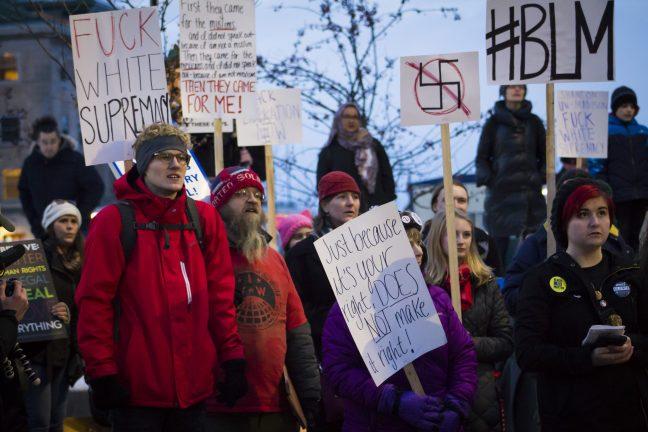Perhaps I shouldn’t be surprised given their history, but I was disappointed to learn the University of Wisconsin’s Havens Center for Social Justice intends to honor British communist Tariq Ali with their lifetime achievement award Oct 19. The Havens Center bills itself as being “dedicated to promoting critical intellectual reflection and exchange,” and it’s no secret their ideas tend to lean far left politically. The past recipients of this award, however, have been people like Howard Zinn and Noam Chomsky who, for whatever their other faults, nonetheless value liberty.
Ali, on the other hand, is so stridently anti-American and against the free enterprise system that he defends corrupt and brutal dictators. Men like Hugo Chavez, whose mismanagement of the Venezuelan economy before his death in 2013 has now left the country in a state of crisis every bit as bad as if a natural disaster had struck, and who held onto power by mobilizing the dependent masses to intimidate the opposition. In Ali’s world, Venezuela is a shining beacon of hope for the defeat of America.
Then there’s Vladimir Lenin, the infamous Soviet dictator whom Ali, true to his Trotskyist roots, attempts to rehabilitate in his new book, The Dilemmas of Lenin. While as a historical figure, Lenin’s life and actions are worthy of inquiry, Ali’s account is dismissive of the ruthless steps Lenin’s government took because civil wars “are never pretty affairs.” Steps such as the creation of the Cheka secret police in 1917, the creation of the Solovki forced labor camp for political opponents in 1923, the brutal suppression at Kronstadt of striking workers demanding new elections in 1921 and many more.
Ali’s argument might be somehow explained away as balancing the historical record were it not for the fact that he advocates for the same communist ideology that produced this awful system. The same communism that killed 100 million people — dismissing them as class enemies. If the voices of these 100 million could speak, what would they have to say to Mr. Ali?
But I’m sure the modern-day communists will object at this point to say something that begins like, “That wasn’t real communism, but to be fair, you have to have a very high IQ to understand communism. The political theory is very subtle, and without a solid grasp of class analysis, most of the praxis will go over a typical citizen’s head.”
Rather than learn from the gruesome mistakes of the 20th century, they always act as though we just didn’t get it quite right last time, but this time! This time, for sure it will be different. You know the maxim: If at first you don’t succeed, keep making the same mistakes over and over.
To put this in perspective, if a university department planned to award an activist known for Holocaust denial and anti-Semitism, and who wrote glowingly of Nazis, we’d all find it rightfully distasteful and inappropriate, because we recognize fascism as a deadly and unrepeatable mistake. But when it comes to communists, for some reason they get a free pass, even though real communism was the poverty and the fear and corruption produced by every one of the many revolutions in its name.
None of this is to say that poverty isn’t a problem in liberal, market economies or that America has done no wrong in the world. But the truth is that free and fair markets, the rule of law and representative democracy have done more to pull people out of grinding misery than any communist system ever did, and far from being a parasitic imperial power, America and her allies are thriving together.
If the Havens Center truly cared about solving poverty, they wouldn’t be indulging Tariq Ali’s bad ideas by giving him an award. Is a man who supports dictators truly the most deserving of an award for social justice? And if so, who is supporting the work of the Havens Center?
Amanda Love ([email protected]) is a senior majoring in mathematics.














